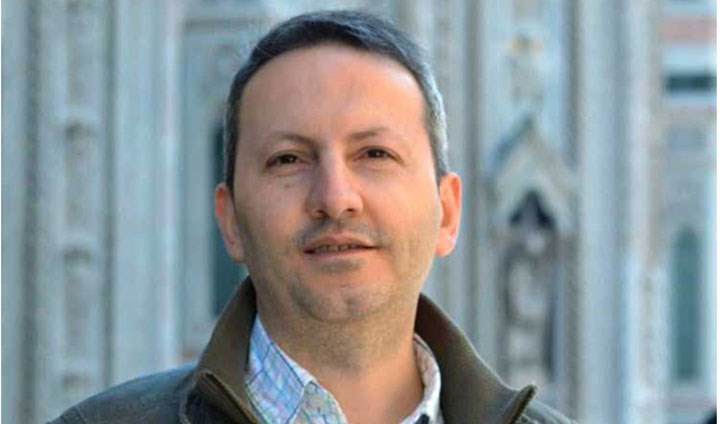Örebro University endorses statement in reference to Ahmadreza Djalali

Ahmadreza Djalali
It has been five years since scientist and Swedish citizen Ahmadreza Djalali was arrested and imprisoned in connection with a tour of lectures in Iran. Following a trial which cannot be regarded as anything but a legal scandal, with fabricated accusations and no real chance to defend himself, Ahmadreza Djalali was sentenced to death.
Karolinska Institutet, Università del Piemonte Orientale, Italy, and Vrije Universiteit Brussels, Belgium have sent a joint statement to members of the European Parliament and national-level politicians, among others, in the three countries.
Örebro University endorses the statement from these three universities where Ahmadreza Djalali has been active. We hope that others will follow suit and urge politicians to take action and to increase the calls for Iran to release Dr Djalali.
Johan Schnürer, Vice-Chancellor, Örebro University
Lisa Kurland, Professor, Örebro University and former supervisor of Ahmadreza Djalali at Karolinska Institutet
“We must do everything in our power to save Dr. Ahmadreza Djalali’s life”
Five years have passed since Dr. Ahmadreza Djalali, an esteemed Iranian-Swedish scholar of disaster medicine, was wrongfully imprisoned. To date the evidentiary basis for his arrest, death sentence, and continued detention remains undisclosed.
We, the Karolinska Institutet, the Università del Piemonte Orientale, and the Vrije Universiteit Brussel, were privileged to count Dr. Djalali as a colleague, are once again publicly calling for his immediate release.
Dr. Djalali must be released now. His health is rapidly deteriorating. During his imprisonment, he has been repeatedly denied access to essential medical care, despite evidence that he is suffering from leukaemia. Throughout the pandemic he was held in a cell of about 30 square meters that he shared with fourteen other prisoners, until he was moved on November 24th, 2020, into complete isolation. After over 140 days in solitary confinement, Dr. Djalali was transferred back to a multiple-occupancy cell in Evin prison, where he remains under the constant threat of execution.
Authorities continue to deny Dr. Djalali access to his lawyer or family, raising grave concerns that the authorities may still be planning to carry out his execution in secret. Their refusal to provide Dr. Djalali access to appropriate medical care further suggests that they have resolved to allow him to die without having to explicitly execute him.
This is unbearable for Dr. Djalali, as it is unbearable for his young family, and wife.
Dr. Djalali’s situation should concern scholars and society everywhere. He has been sentenced to death in apparent retaliation for international scholarly collaboration within his field of study. His wrongful prosecution and imprisonment, much like the wrongful prosecution and imprisonment of scholars and researchers like him, serves to endanger academic work, and deprives everyone of the benefits of scientific inquiry and exchange.
We, the Karolinska Institutet, the Università del Piemonte Orientale, and the Vrije Universiteit Brussel, reiterate our appeal to secure Dr. Djalali’s unconditional release, so that he can return home to Sweden. We demand that authorities ensure that Dr. Djalali has immediate access to a qualified health professional, who can provide health care in compliance with medical ethics, including the principles of confidentiality, autonomy, and informed consent. We urge the international community to take immediate renewed action in response to the deteriorating situation that Dr. Djalali is currently in, and we urge the EU and the Member States to intercede in this case before it is too late.
We must do everything in our power to save Dr. Ahmadreza Djalali’s life.
Prof. Ole Petter Ottersen, President Karolinska Institutet, Stockholm, Sweden
Prof. Gian Carlo Avanzi, Rector Università del Piemonte Orientale, Vercelli, Italy
Prof. Caroline Pauwels, Rector Vrije Universiteit Brussel, Brussels, Belgium
